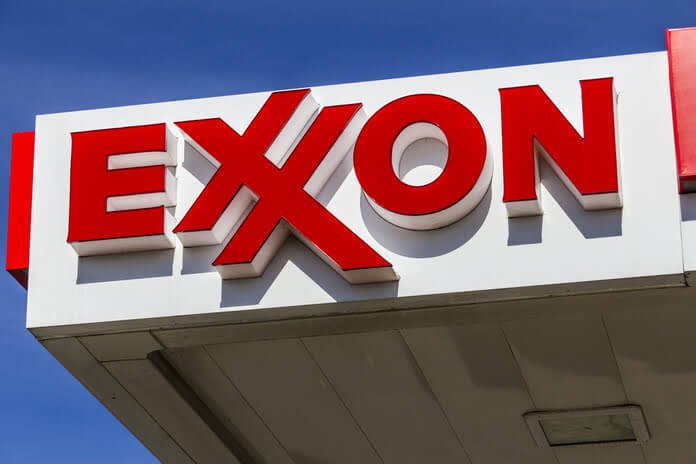Exxon (Exxon Mobil Stock) opposes calls for oil corporations to reduce international exports and store more petroleum in storage tanks.
Exxon Mobil Corp. (NYSE:XOM) is opposing restrictions on U.S. petroleum exports demanded by the Biden administration in August, claiming that doing so would further deplete world supplies and increase domestic pump prices.
According to the letter seen by The Wall Street Journal, Exxon (NYSE:XOM) this week advised the Energy Department that the oil sector shouldn’t delay gasoline shipments in favor of adding more to storage tanks. According to the letter, which Exxon (NYSE:XOM) Chief Executive Darren Woods signed, easing exports would result in a surplus on the Gulf Coast, forcing refineries to reduce output rather than filling tanks in the Northeast, where U.S. authorities claim oil firms need to ship more supplies.
Whether U.S. petroleum exports are at or near record levels harming American customers is in question, especially in areas with low stocks like the East Coast. Although many oil executives disagree, administration officials have claimed that exports are part of why U.S. fuel stocks are declining.
Continued Gulf Coast exports are necessary to effectively rebalance markets, especially in light of Russian supplies that have been diverted, according to Mr. Woods’ letter. “Decreasing the worldwide supply by restricting U.S. exports to create region-specific inventories will further exacerbate the global supply gap.”
A representative for the Energy Department claimed that during hurricane season, oil and gas supply levels in some areas of the nation are unacceptably at or near five-year lows.
According to the spokesman, “the administration has made clear to the oil and gas sector that it must do more to assure fair prices and enough supplies for all Americans while also addressing the requirements of our allies.”
Democrats and the oil industry have been at odds over supply constraints, record-high oil prices, and skyrocketing sector profits this year. Mr. Biden has pushed oil corporations to increase their fuel-making capacity, extract more oil from the ground, and expand LNG exports this year to relieve a crisis in Europe.
Exxon (Exxon Mobil Stock) and Other Oil Companies Prices Affected By Russia -Ukraine War
Oil prices reached their highest levels in years due to Russia’s invasion of Ukraine, which has increased the reliance of Europe and other countries on U.S. fossil fuel exports. The fourth-highest monthly total ever and the greatest month since the start of the epidemic in early 2020, according to U.S. data, was in June, when gasoline prices in the United States reached a record $5 per gallon.
Energy Secretary Jennifer Granholm wrote to oil firms in August, pleading with them to stop exporting petroleum and instead restock stores along the East Coast, which is vulnerable to fuel shortages due in part to its distance from major Gulf Coast refineries. She stated that the government would consider “additional federal regulations or emergency actions” if the corporations failed to comply, which many analysts took as a threat to impose export restrictions.
She stated in her letter that “the most efficient method to address this issue without deploying emergency operations is for the industry to prioritize building inventories during this vital timeframe.” “The results demonstrate that construction inventories have not advanced sufficiently ahead of storm season’s peak.”
According to persons who know the situation, Ms. Granholm has also had private talks about export limits with business leaders. She stated during a news conference in September that no limits were being considered at the moment by the government.
Domestic crude and product stockpiles were at their lowest points since 2015. According to federal data, American refiners have lost approximately 5% of their daily gasoline production capacity since the epidemic started due to plant closures and biofuel conversion. At the same time, shale drillers maintained roughly level oil output from December to June.
According to oil specialists, the surge in foreign exports contributed to fuel stockpiles’ continued depletion and the sharp hikes in gasoline and diesel prices earlier this year. Similar to how growing LNG shipments have increased domestic natural gas prices this year.
For the time being, some of the political pressure caused by high energy costs has subsided. Since they peaked at almost $5 per gallon, gasoline prices have decreased by more than $1.20 as oil prices have decreased due to concerns about an impending economic slump. Since early June, gasoline inventories have climbed nationwide by roughly 6%.
According to Mr. Woods’ letter, the amount of gasoline and ethanol stored on the East Coast was 59.3 million barrels, roughly 1% less than normal for the time of year. He said that the demand for gasoline through June was 9% lower than it had been on average in the three years before the Covid-19 outbreak.
The petroleum pipelines that go from the Gulf Coast to the East Coast are full, according to Mr. Woods. Mr. Woods asserted that there aren’t enough ships to transport additional American-made petroleum to the Northeast without exemptions from the Jones Act, a statute imposed a century ago that essentially caps the number of ships permitted to transport products between U.S. ports.
The Biden administration gave an interim Jones Act waiver on Wednesday, enabling a tanker carrying diesel to discharge its 300,000 barrels of cargo into Puerto Rico.
According to Mr. Woods’ letter, Exxon (NYSE:XOM) primarily sells gasoline to the East Coast market. He added that if there was a supply problem in the Northeast, the business could shift gasoline from other Midwest locations and from refineries overseas.
Featured Image: Megapixl © Jetcityimage















